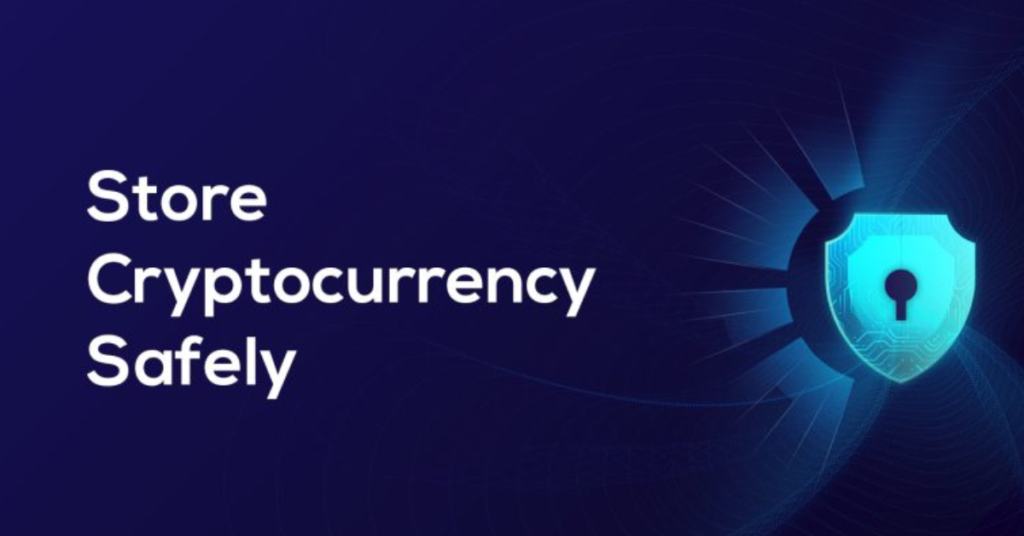Cryptocurrency has revolutionized the world of finance, offering an innovative way to invest and transfer wealth. However, with the growing popularity of digital currencies, such as Bitcoin, Ethereum, and other altcoins, it’s important to know how to purchase cryptocurrencies securely. The decentralized and digital nature of these assets means that they come with both exciting opportunities and considerable risks. In this guide, we will explore the best ways to buy cryptocurrency safely, while also outlining the measures you can take to protect your investments.

1. Gain a Solid Understanding of Cryptocurrency
Before buying any cryptocurrency, it is essential to have a clear understanding of what it is and how it works. Cryptocurrencies are digital currencies that use cryptographic techniques to secure transactions and control the creation of new units. Unlike traditional currencies, cryptocurrencies are decentralized and operate on blockchain technology, which is a public ledger that records all transactions.
Familiarize yourself with key concepts such as blockchain, wallets, tokens, and mining to make well-informed decisions. By understanding the underlying technology and mechanics of the market, you will be better equipped to navigate the crypto landscape and avoid common pitfalls.
2. Choose a Secure and Trustworthy Exchange
The first step in buying cryptocurrency is selecting a reputable cryptocurrency exchange. A cryptocurrency exchange is a platform that allows you to buy, sell, and trade digital currencies. Not all exchanges are created equal, so you need to carefully evaluate your options. Here’s what you should consider when choosing an exchange:
- Regulation and Licensing: Ensure that the exchange is licensed and regulated by the authorities in your jurisdiction. This will provide you with an added layer of protection, as regulated exchanges are bound by consumer protection laws.
- Security Features: Security is paramount in cryptocurrency transactions. Look for exchanges that offer advanced security features, including two-factor authentication (2FA), SSL encryption, and insurance for digital assets. Some exchanges also use cold storage to protect the majority of funds from hacking attempts.
- User Interface: An intuitive, easy-to-navigate interface is important, especially for beginners. Make sure the exchange is user-friendly and provides access to relevant information such as price charts, trading volume, and market analysis.
- Fees and Charges: Different exchanges have different fee structures. Be sure to understand the trading fees, deposit and withdrawal fees, and any additional charges before committing to a platform.
Some of the top exchanges that are known for their security and user-friendly interfaces include Coinbase, Binance, Kraken, and Gemini. However, always do your own research to determine which one best fits your needs.
3. Secure Your Cryptocurrency with a Wallet
Once you’ve purchased your cryptocurrency, it’s essential to store it securely. Leaving your funds in an exchange wallet is not recommended, as exchanges can be vulnerable to hacks and security breaches. Instead, transfer your assets to a secure personal wallet. There are two main types of wallets:
- Hot Wallets: These are connected to the internet and are best for active traders who need quick access to their cryptocurrency. Hot wallets, such as mobile apps or software wallets (e.g., MetaMask or Exodus), are convenient but come with the risk of online attacks.
- Cold Wallets: These are offline wallets, considered the most secure option for storing cryptocurrency long-term. Hardware wallets like Ledger and Trezor store your private keys offline, minimizing the risk of hacking. Cold wallets are ideal for those who intend to hold their cryptocurrency for an extended period.
When setting up a wallet, be sure to back up your private keys and recovery phrases securely. If you lose your private key, you risk losing access to your cryptocurrency forever.
4. Use Strong Security Measures
Cybersecurity is crucial when dealing with cryptocurrency. Here are some steps you can take to ensure your investments remain safe:
- Enable Two-Factor Authentication (2FA): 2FA adds an extra layer of protection by requiring a second verification step when logging into your exchange or wallet. This could be a code sent to your mobile device or generated by an authentication app like Google Authenticator.
- Use Strong, Unique Passwords: Always use complex, unique passwords for your crypto exchange accounts and wallets. Avoid using the same password across different platforms, as this makes you more vulnerable to hacks.
- Beware of Phishing Attempts: Cryptocurrency scams often come in the form of phishing emails or fraudulent websites. Be careful about clicking links or downloading files from unknown sources. Always double-check URLs and verify the authenticity of communication.
- Avoid Public Wi-Fi: Do not access your cryptocurrency accounts over public Wi-Fi networks, as they can be insecure and easy targets for hackers. If you must, use a Virtual Private Network (VPN) to encrypt your internet connection.
5. Stay Vigilant Against Scams and Fraud
The rise of cryptocurrency has unfortunately also led to an increase in scams and fraudulent schemes. It’s important to stay aware of these common pitfalls to avoid losing your investments:
- Research Before Investing: Don’t rush into investments. Take the time to research the projects behind the cryptocurrencies you’re considering. Check for transparency, read the whitepapers, and assess the team behind the project. Beware of new coins or ICOs (Initial Coin Offerings) that promise extraordinary returns with little information to back them up.
- Avoid “Get Rich Quick” Promises: If an investment opportunity sounds too good to be true, it probably is. Scammers often prey on investors by promising guaranteed high returns with little risk. Legitimate investments don’t make such bold claims.
- Double-Check URLs: Fraudulent websites often use URLs that mimic legitimate platforms to steal your personal information. Always ensure you are visiting the official website of an exchange or wallet provider.
- Be Skeptical of Unsolicited Offers: Whether it’s an email, a phone call, or a social media message, avoid responding to unsolicited offers or requests for funds. Always verify the identity of the person or entity before proceeding.
6. Diversify Your Investments
As with any form of investment, diversification is key to managing risk. The cryptocurrency market can be highly volatile, and the value of a single asset can fluctuate dramatically. By diversifying your portfolio, you reduce the likelihood of a complete loss if one asset performs poorly.
- Invest in Multiple Cryptocurrencies: While Bitcoin and Ethereum remain the most popular choices, there are thousands of altcoins with unique use cases. Spreading your investments across different cryptocurrencies reduces your exposure to the volatility of a single coin.
- Consider Stablecoins: Stablecoins like Tether (USDT) or USD Coin (USDC) are pegged to a fiat currency, such as the US dollar, and are less prone to extreme price swings. These can provide stability in a market known for its fluctuations.
- Long-Term vs. Short-Term Strategies: Decide on your investment horizon. If you’re planning to hold your assets for the long term, consider focusing on well-established cryptocurrencies. Short-term traders may benefit from more volatile assets, but they should be prepared for sudden market shifts.
7. Stay Informed and Keep Learning
The cryptocurrency market is constantly evolving. To make the best decisions, it’s essential to stay informed about market trends, new developments, and regulatory changes.
- Follow Industry News: Websites like CoinTelegraph, CoinDesk, and CryptoSlate are excellent sources of cryptocurrency news and analysis. Staying updated with the latest information can help you spot new opportunities and avoid potential risks.
- Participate in Communities: Join online forums and communities such as Reddit’s r/CryptoCurrency or BitcoinTalk. These platforms allow you to learn from other investors, share strategies, and discuss the latest trends.
- Understand Legal and Tax Obligations: Cryptocurrency regulations differ by country and may be subject to changes. Be aware of any tax obligations and ensure you comply with local regulations regarding cryptocurrency transactions.
8. Be Mindful of Taxes
Buying and selling cryptocurrency often comes with tax implications. In many countries, profits from cryptocurrency trading are taxable. Therefore, it’s important to keep accurate records of your transactions for tax reporting purposes.
- Track Your Transactions: Maintain a detailed log of every buy, sell, and trade you make. This information will be necessary when calculating capital gains or losses.
- Consult a Tax Professional: If you’re unsure about your tax obligations, seek the help of a professional. Tax laws surrounding cryptocurrencies can be complex, and a tax advisor can ensure that you are in compliance with local regulations.
Conclusion
Cryptocurrency is an exciting and potentially lucrative investment, but it requires careful planning and risk management. By choosing a reliable exchange, securing your assets in a personal wallet, following strong security practices, and staying informed, you can buy cryptocurrency safely and confidently. Diversifying your portfolio and being aware of scams will further protect your investments, ensuring that your experience with cryptocurrency is as secure and profitable as possible.
Remember, the crypto market is volatile, so always invest with caution and only what you can afford to lose. By adopting a thoughtful and informed approach, you can enjoy the benefits of cryptocurrency while minimizing potential risks.


